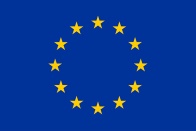
Negev Coexistence Forum for Civil Equality
פורום דו-קיום בנגב לשוויון אזרחי
منتدى التعايش السلمي في النقب من أجل المساواة المدنية
UN body to Israel: Address key issues regarding Bedouin citizens, discrimination against non-Jews
01.04.2019
Adequate standard of living
The Committee asked Israel to provide information on the measures taken to mitigate the negative impact of privatization of social services on the enjoyment of the Covenant rights, particularly by disadvantaged and marginalized individuals and groups, including: To regulate the exorbitant price for water provided by private providers in the unrecognized Bedouin villages; To improve sanitation facilities and the waste management system in the Bedouin communities, including the implementation of the Government Resolution No. 546.
Jewish Nation-State Law & discrimination
The Committee asked Israel to provide information on:<Measures taken or envisaged to explicitly guarantee the principle of equality and the prohibition of non-discrimination in the Basic Law: Human Dignity and Liberty and to review legislation with a view to remove discriminatory provisions, particularly those against the non-Jewish population. Assessments, if any, which Israel carried out on impact of the Basic Law: Israel as the Nation-State of the Jewish People on the non-Jewish population and on their enjoyment of the Covenant rights, particularly the right to self-determination, right to non-discrimination and cultural rights. Concerns raised regarding the Law that it may exacerbate the existing ethnic segregation and lead to policies and budget allocation that may further disadvantage the non-Jewish population. Please further provide updated information on the case brought before the Supreme Court arguing the constitutionality of this law.
Right to education
The Committee asked Israel to provide information on: Impact of measures taken to address high incidence of school dropout and low level of academic achievement among Arab and Bedouin students; Measures taken, and their impact, to ensure that all children, including Arab and Bedouin children, benefit from free early childhood education, and the enrollment rates of these groups of children.
NCF responds
“NCF welcomes the Committee’s List of Issues. The time has come for the State of Israel to cease using mechanisms of intimidation and dispossession against its own citizens and recognize the Bedouin’s ancestral right to the land.”
Adalah responds
“We are happy to have convinced the Committee to focus on the forced displacement of the Bedouin community as one of the key concerns requiring further clarification from Israel. “Although the Prawer Plan for mass displacement of the Bedouin was frozen in 2013, Israel is now using other mechanisms to forcefully displace Bedouin communities. The past two years, for example, have seen a huge increase in Israeli demolitions of Bedouin homes due to the new Kaminitz Law. Israel has also just revealed a plan to forcefully displace 36,000 Bedouin citizens to make way for massive ‘development’ projects to be built on top of their homes and villages. All these practices are expected to receive backing from the Jewish Nation-State Law.”
CLICK HERE to read the Committee’s List of Issues to Israel
CLICK HERE to read the State of Israel’s report to the CESCR Committee
CLICK HERE to read the joint Adalah-NCF report

This press release is part of a project funded by the European Union. The contents are the sole responsibility of Adalah and NCF and should not be regarded under any circumstances as reflecting the positions of the European Union.

 Youtube
Youtube
 Twitter
Twitter
 Facebook
Facebook